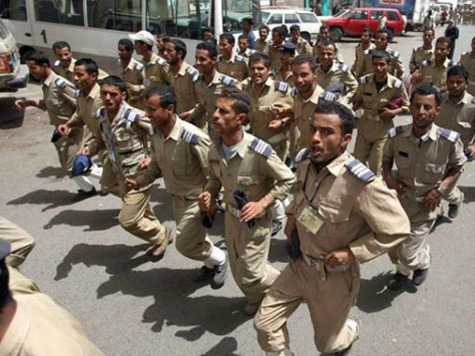SANAA, Yemen (AP) — U.S operation forces took part in a rescue mission that freed eight hostages in a remote corner of Yemen, but a Yemeni official said Wednesday that it did not liberate five others, including an American journalist and a Briton who were moved elsewhere by their al-Qaida captors days before the raid.
Eight hostages — including a Saudi– were liberated in the joint U.S.-Yemeni operation, a rare instance of American forces intervening on the ground in Yemen. A member of the Yemeni anti-terrorism forces was quoted on a website connected to Yemen’s Defense Ministry, saying that the mission searched for a group of hostages from several nations in an eastern province, but when the commandos arrived at the cave where al-Qaida militants had chained and covered the hostages in blankets, the American and four others were already gone.
A senior U.S. official had earlier confirmed U.S. involvement and said no American was rescued, without elaborating whether the operation had intended to free one.
The mission was carried out in a vast desert area dotted with dunes called Hagr al-Saiaar, an al-Qaida safe haven where local tribes offer them protection near the Saudi border.
The operations come as U.S. drone strikes target militants amid a Shiite rebel power grab in the politically unstable, impoverished nation and fierce battles between al-Qaida and Shiite rebels.
Yemenis initially gave no mention of American involvement in the operation and said its special forces and anti-terrorism units carried out the raid alone.
However, a Yemen Special Forces member identified only as Abu Marouf gave a detailed account of the operation to the semi-official Yemen Defense Ministry online portal, named Sept. 26.
He said that his unit received intelligence information about al-Qaida militants moving hostages chained in shackles and covered with blankets in pickup trucks to Hagr al-Saiaar where they kept them in caves. He added some 30 troops, including snipers, were deployed in the early hours Tuesday some seven kilometers (four miles) from the caves, which he described as 10 meters deep and 30 meters wide.
Divided into four groups, he said he was among the main group that stormed the entrance of the cave then engaged in a shootout that ended with the killing of all seven kidnappers.
“We found the eight hostages chained. We found al-Qaida cellphones and documents,” he said, adding that the hostages said five of their companions had been moved out to an unknown location. He listed nationalities of the other hostages as an American journalist, one Briton, one South African, a Yemeni and a fifth believed to be Turkish. He did not identify them.
Al-Qaida in the Arabian Peninsula is considered by the U.S. to be the world’s most dangerous branch of the terror network and has been linked to several failed attacks on the U.S. homeland. Yemen has seen both foreigners and Yemenis targeted in kidnap attempts, either for ransom, political reasons or over suspicions that victims worked as spies helping Americans carry out the drone strikes.
The strikes targeting suspected militant gatherings are increasingly unpopular in Yemen due to civilian casualties, legitimizing for many the attacks on American interests. The U.S. Embassy in Sanaa has been closed several times recently over militant threats.
The site shed light on the riskiness surrounding the operation. Other Yemeni officials said that one of the main tribes in the area is led by the well-off Waqash al-Saiaari, who gave shelter to the militants. They say al-Qaida set up large training camps in the area.
Members of al-Qaida affiliates from this area were recently arrested while trying to flee the country after alleged involvement in the beheading of 16 Yemeni soldiers in August.
Officials spoke on condition of anonymity because they were not authorized to speak to the press.
___
Burns reported from Washington. Associated Press writers Maggie Michael and Jon Gambrell in Cairo contributed to this report.

COMMENTS
Please let us know if you're having issues with commenting.